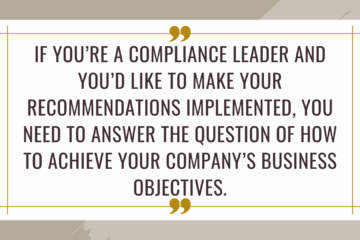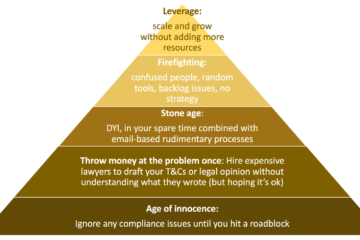Continuous Education: When is it Useful and When is it Counterproductive?
When you finish a course and say “I’m proud I did it and I’m glad it’s over” – it’s a red flag.
Why? Because it’s a likely sign you are not actually applying your new skills and maybe you are not getting the professional results you were hoping to achieve.
My view is that the main goal of continuous professional education is not entertainment, not networking opportunities, not saving people from boredom and mundane tasks, or making them feel good about making at least some progress.
Following through courses and programs often feels good because we hope that we are doing something useful, taking time for ourselves… The downside of learning is that it delays action by creating an illusion that we will be ready soon and, in the meantime, we are still making progress. I am not suggesting that networking and learning something is necessarily bad, I am suggesting that if you don’t apply your new skills or concepts quickly into practice, your new knowledge disappears (I completed about 15 different intermediate-level French classes and never got to speak decent French, so I know from experience.)
A program that can truly accelerate your professional growth and help you get results must provide all of the following:
- You are forced to take imperfect new action and get out of your comfort zone right away so that you can get feedback, and try again in a safe environment. That’s why effective fitness trainers always switch exercise routines. Job search consultants always have post-mortem analysis with their clients, when the interview did not go well.
- You learn new skills and you apply the new skills right away, and there is an accountability embedded into the learning process so that you cannot hide. That’s why most relationship coaches force their clients to have uncomfortable conversations.
- When you don’t take action, delay decisions, sabotage yourself, or otherwise get stuck, this lack of action or unhealthy habits and behaviors can be addressed during the program with your trainer or mentor, where you have an opportunity to discuss your objections, reservations, and hesitations, so that they get resolved before the program is over. I read that this principle is one of the main foundations of Alcoholics Anonymous’s 12 steps.
- It needs to feel uncomfortable because feeling uncomfortable is a sure sign you are changing your approach and getting out of your comfort zone. Trainers of public speaking skills know this well – they push their participants to speak and practice.
When designing the FinTech Startup Compliance Pro Certification, my primary goal was to make it useful and actionable. And uncomfortable. This is how we are going to do it:
- Goal-setting. At our first group call on September 1st, 2023, I will give you the guidance and the script on how to have goal-setting, priorities-setting, or focus-aligning conversations with your manager, CEO, BOD, or even a new potential employer. You will have to take this conversation within the next 2 weeks and report back the results. The purpose of this conversation is to gain support and clarity from your main stakeholders about what you would like to achieve and what stands in the way.
- Manage regulatory change. Our next call will be a workshop dedicated to developing the skills needed to prepare and manage a regulatory change. We will use the example of the MICA Regulation and Funds Transfer Regulation. You will be asked to draft key changes needed to be implemented within your company (or your hypothetical company) during the call.
- Preparing compliance ROI. We will have a special training where you will have to analyze the key components of the compliance costs and the composition of the compliance budget. You will have to prepare the budget for a new compliance initiative of your choice using the Return on Investment Method and position this request as a request coming from a revenue-generating unit rather than a cost-center unit.
- Behaviors and false beliefs that keep us stuck. Everyone who did not do their homework, did not take agreed-upon action, feels “behind” or otherwise is unhappy with their progress, will have to talk about what is preventing them from taking a different action and will get coaching and feedback on how to make the changed they desire to see.
- Final Assignment – Where can you take more risks? Our last call will be dedicated to preparing your final assignment. You will have to identify, prepare a justify a case study where your company should take more risks. We will review a number of strategies and examples of how to select an issue that will have a meaningful impact, prepare the case, and put in place reasonable risk-mitigating strategies.
DEMO VIDEO: SNEAK PEEK INTO FINTECH COMPLIANCE SELF-STARTER
If you are an existing or past student, and you are interested in becoming certified, you will be able to apply your past payments towards this program.
Remember, we will go back to school on the 1st of September, so – JOIN TODAY (and start learning right away)!
Is there something else you feel you absolutely need help with, that is not covered as a part of our Certification curriculum? Let me know!

Don’t miss this fresh episode on the Compliance That Make Sense podcast today! Listen now!



